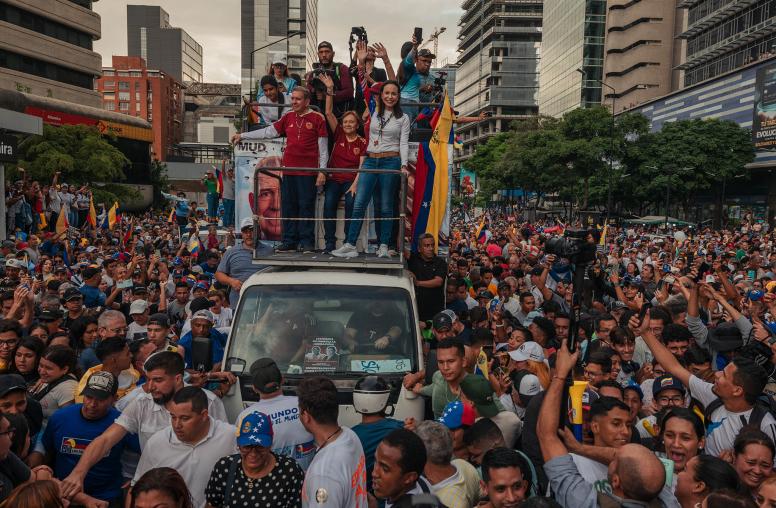Preventing Election Violence Through Diplomacy
THE USIP PRESS BOOKSTORE IS TEMPORARILY UNAVAILABLE
Focusing on three case studies in Africa, this book analyzes the utility of diplomacy in preventing election violence. After defining and identifying the key dimensions of preventive diplomacy to prevent or reduce election violence, it looks at presidential elections between 2006 and 2017 in the Democratic Republic of the Congo, Kenya, and Nigeria. Drawing on personal experience, the literature, case study reviews, and expert interviews and roundtables with academics and practitioners, the book highlights conditions for the success and the failure of preventive diplomacy, offering recommendations to the international community for maximizing the efficacy of this unique tool.
About the Author
Bhojraj Pokharel is an internationally recognized expert on organizing elections in conflict and postconflict environments. As head of Nepal’s Election Commission from 2006 to 2009, he was a key architect of the first constituent assembly elections after the peace deal that ended the country’s decade-long conflict. He has twice been appointed by the Secretary-General of the United Nations to serve on high-level panels—for Bangladesh’s 2008 parliamentary elections and for South Sudan’s referenda process in 2010–11. Currently a member of the Kofi Annan Foundation’s Electoral Integrity Initiative steering group, Pokharel was a 2017–18 Jennings Randolph Senior Fellow at the United States Institute of Peace, where he researched and wrote Preventing Election Violence through Diplomacy.
“Bhojraj Pokharel's extensive experience as a diplomat gives him unique insight into the efficacy of preventive diplomacy. This theoretically informed and empirically rich text shows how early, sustained, and multidimensional international action can help stop election violence. Preventing Election Violence through Diplomacy is an important contribution to the study and practice of conflict prevention.”
Geoffrey Macdonald, Bangladesh Country Director at the International Republican Institute
“Pokharel’s lucid exposition of the concept of preventive diplomacy, complete with illustrative examples from three recent African case studies, will make this extremely readable book an invaluable resource for anyone in engaged studying or combating electoral violence. Highly recommended.”
Duncan McCargo, Columbia University
“Bhojraj Pokharel is eminently qualified as an experienced practitioner and researcher to take on the critical subject of preventive diplomacy to lower election violence. His insights are valuable, and conclusions are sound. This book should be required reading for people working to make elections in countries at risk of violence safe and fair.”
B. Lynn Pascoe, Former Under-Secretary-General for Political Affairs at the United Nations
“The publication of Preventing Election Violence through Diplomacy, by Bhojraj Pokharel, drawn from his extensive experience in the election environment, is most opportune. His insights and knowledge add to the discourse on alternative dispute resolution and will be extremely valuable to all stakeholders engaged in the electoral process.”
Ilona Tip, international elections expert
“Preventing Election Violence through Diplomacy provides a rare glimpse into the role of diplomatic messengers, messages, and levers to achieve credible and peaceful elections. Electoral diplomacy usually focuses on political parties and election management bodies but tends to be private and thus challenging to trace and evaluate. Bhojraj Pokharel builds on a wealth of professional experience in election management, international election support, and conflict mitigation. In a careful, systematic analysis of elections in three African countries, the author shows that diplomatic engagement can mitigate electoral violence when it is early in the electoral process, consistent, coordinated, and by actors with regional expertise and/or sufficient leverage. An excellent addition to the literature on election violence prevention, and highly relevant for both researchers and practitioners interested in the role of the international community in elections."
Inken von Borzyskowski, Assistant Professor of Political Science, University College London


